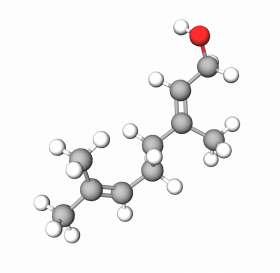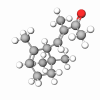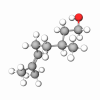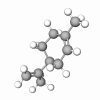Geraniol is terpenoid alcohol, an aromatic compound in many essential oils such as rose, citronella, and palmarosa. It was initially found in Geranium species, an essential oil commonly used in the perfumery, and got its name. In addition, Geraniol is found in many edible plants, fruits, and berries; thus, it is a safe food-grade ingredient used as a flavoring agent, perfume, and masking agent, thanks to its intensive sweet rose-like odor with citric and fresh notes.
Primarily used as a fragrance in skin and hair care applications, Geraniol exhibits numerous beneficial properties, including antimicrobial, anti-inflammatory, insect repellent, and antioxidant action. It is effective against many bacteria, mold, and fungi (including fungicide action) and prolongs the preparation's shelf-life while fighting against microbes responsible for various skin infections and acne formation. In addition, it balances skin microflora, exposing a healthy appearance.
Honeybees have specialized Geraniol producing glands and mark the entrance of their hives with this aromatic substance for odor-modulated navigation. Evolutionary many insects, including mosquitos, developed the ability to detect this monoterpene alcohol and avoid hives, as bees can kill them while defending the hive. So, Geraniol is a perfect natural insect repellant that protects skin from mosquito bites.
It is a readily biodegradable and eco-friendly ingredient with good stability in formulations and substantivity for 24 hours. Maskin unpleasant odor of some active ingredients, Geraniol provides a fresh scent, improves mood, and protects skin from microbial and free radical influences.


